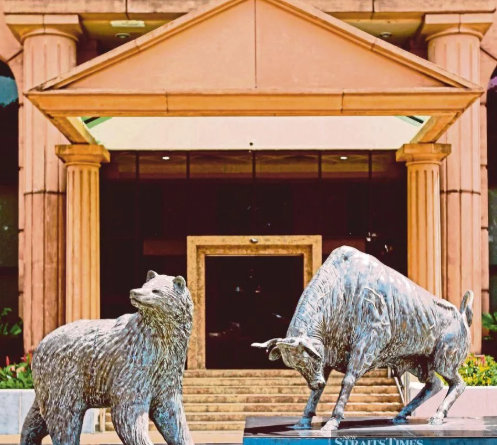Bursa recoups nearly half of market cap loss
KUALA LUMPUR: Malaysia’s stock exchange bounced back from the fallout of the political turmoil following the collapse of the Pakatan Harapan government and resignation of Prime Minister Tun Dr Mahathir Mohamad on Monday.
Bursa Malaysia’s benchmark FBM KLCI rose 0.73 per cent or 10.82 points to 1,500.88 yesterday from the 2.7 per cent or 41-point drop on Monday.
In the process, the 970 stocks listed on the bourse recovered some RM20 billion from the RM43.4 billion loss in market capitalisation on Monday. Total market capitalisation stood at RM1.61 trillion compared with RM1.59 trillion the day before.
Analysts said the rebound was fuelled by bargain hunting and local funds’ support as well as receding political uncertainty.
At the close yesterday, gaining stocks outpaced losers 531 to 380 with 407 counters unchanged, 685 untraded and 21 suspended.
Analysts said the bourse needed at least 23 points a day until the end of the week to be on a bull run again.
Bursa ended its 12-year reign as the world’s longest bull run stock market as Monday’s 2.7 per cent drop brought its year-to-date decline to more than 20 per cent.
If the bourse could not recover at least 50 per cent from Monday’s drop, it would continue to be a bear market, they added.
“The sentiment suggests the bear is stronger than the bull. However, we need an economic stimulus package. We need earnings growth to recover and create value in the market. Then we can attract investors,” an analyst told the New Straits Times.
He said the current low optimism in the stock market was fuelled by political uncertainty and the United States-China trade war. This was exacerbated by the coronavirus (Covid-19) outbreak.
Maybank Investment Bank Bhd senior chartist Nik Ihsan Raja Abdullah said bargain hunting was primarily in the construction, banking and technology sectors while rubber-related stocks continued to surge on the back of improved earnings while Covid-19 remained a global concern.
“The strong rebound in the construction sector is largely due to most of the stocks that had experienced a sell-off a day earlier now trading within the support level.”
Nik Ihsan said investors were also waiting for the stimulus package, scheduled to be announced by the government tomorrow, although signs are showing that it could be delayed pending approval from a new cabinet.
CIMB Group Holdings Bhd chief economist Dr Donald Hanna said markets often overreact to surprises.
The markets would not take a one-day move as demonstrating material momentum, he added.
“For better market performance, certainty on the new political scenario will be needed. The re-appointment of Dr Mahathir as prime minister would help. The market will now look for the make-up of the new cabinet, whether a snap election is coming and how macro policies will evolve, especially the supplemental budget,” he told the NST yesterday.
On the ringgit, Hanna said the local currency had been trading above 4.20 against the US dollar.
Further depreciation was limited given ongoing US dollar weakness owing to slippage in the Purchasing Managers’ Index, he added.
“The ringgit may consolidate around current levels until we see further developments on the government and assistance package to deal with Covid-19.
“That said, the global economy is collectively weak, and Malaysia is not an exception. A silver lining is that Malaysia’s exposure to inbound tourists from China is relatively less than, say, countries such as Thailand and Singapore,” he said.
Juwai IQI Global chief economist Shan Saeed said the market was intrigued over the possibility of a new prime minister following Dr Mahathir’s resignation on Monday.
“Investors hope there will be a very quick recovery in Malaysia with no political uncertainty. They also want more macroeconomic stability that will drive economic confidence,” he told the NST.
He added that economic confidence would be the catalyst to drive Bursa and the ringgit.
“For the first quarter of 2020, we expect the ringgit to be traded between 4.05 and 4.11 against the US dollar. If the political stability remains, the ringgit will remain stronger,” he added.
FXTM market analyst Han Tan said the recent political developments had added to the downward pressures on the ringgit.
Tan said should the mix of downside risks grow more potent, the US dollar/ringgit exchange rate may carve out a path towards the 4.24 to 4.25 region, until there was more clarity with regard to Malaysia’s policy and economic outlook.
Areca Capital Sdn Bhd chief executive officer Danny Wong Teck Meng said the market usually overreacted to certain events emotionally.
“We opine the local market’s fundamentals are still holding,” he told the NST.
OANDA senior market analyst for Asia Pacific Jeffrey Halley said a few regional Asian markets had rebounded yesterday.
“Basically, Asian markets led the move lower in equities globally on Monday. When the S&P e-mini futures rebounded by 1.0 per cent in early Asian trading on profit-taking, that dragged those regional markets, including Bursa, higher,” he told the NST.
Asian Strategy and Leadership Institute’s Centre of Public Policy Studies chairman Tan Sri Ramon Navaratnam said Malaysians were generally troubled by the political turbulence.
“It has already caused the stock market and our foreign exchange to weaken considerably. If (the situation is) not fixed quickly, domestic business and the foreign investment climate can become more adverse,” he told the NST.
He appealed to political leaders to stop politicking, form a stable government to serve the public better and discard narrow vested interests.
“The people must come first and foremost in order to promote their wellbeing. The people must not feel neglected or they will probably react negatively and that would be bad for all,” he added.
He said the stimulus package had also become a victim of this politicking.
“Thus the whole economy and the poor will be badly hit when they can least afford it. They (politicians) should put us back on the recovery track and not sidetrack us.”
Source: NST

